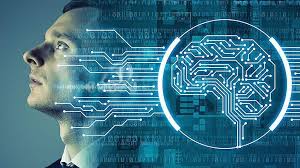Defining Intelligence in Artificial Systems
The question of whether AI systems possess true intelligence sparks considerable debate across multiple disciplines. To address this, we first need a clear definition of "intelligence." Traditionally, intelligence encompasses the ability to learn from experience, adapt to new situations, understand complex ideas, and apply knowledge to manipulate one’s environment. AI systems, from this perspective, demonstrate some, but not all, facets of what we classify as intelligence.
Capabilities of Modern AI
Recent advancements in machine learning and deep learning have propelled AI to remarkable achievements. For instance, AI algorithms have mastered complex board games like Go and chess, outperforming the world’s top human players. AlphaGo, a program developed by DeepMind, defeated the world Go champion in 2016 by using strategies that were described as highly creative and "intuitively human," showcasing AI’s capability to learn and strategize beyond human abilities.
Learning and Adapting
AI's ability to learn and adapt is often showcased through its application in dynamic environments. Autonomous vehicles, for example, use AI to interpret and navigate roads and obstacles in real time. In 2020, research indicated that these systems could reduce traffic accidents by 30% by reacting to hazards more quickly than a human driver. This responsiveness is a hallmark of what many might consider intelligent behavior.
AI and Problem Solving
One of the strongest arguments for AI’s intelligence is its problem-solving capacity. AI systems are employed to optimize logistics, manage supply chains, and predict maintenance for industrial equipment, solving complex problems that are traditionally challenging for humans. For instance, an AI system implemented by a major logistics company was able to improve delivery efficiency by 25% through better route planning and load management, according to a 2021 industry report.

Understanding and Emotion: The Human Touch
However, intelligence isn't just about logic and problem-solving. Emotional understanding and social interactions are areas where AI significantly lags behind humans. Emotional intelligence, crucial for navigating human relationships and making nuanced decisions, is something current AI struggles with. Systems like IBM’s Watson can analyze tone and sentiment but cannot truly understand human emotions or feel empathy.
Explore AI's Journey Towards Intelligence
Curious about how close AI is to achieving human-like intelligence? Visit human or not to explore the boundaries of AI capabilities and understand where they stand in the spectrum of intelligence.
AI's Place in the Intelligence Debate
While AI systems show remarkable capabilities in learning, adapting, and solving problems, their lack of emotional comprehension and social intelligence prompts a debate on what constitutes true intelligence. Can intelligence be considered complete without the emotional and ethical dimensions that characterize human interactions? This question remains central as AI continues to evolve.
Moving Forward: AI and Human Intelligence
As AI develops, the integration of emotional intelligence may become the next frontier. Projects are underway aiming to equip AI with better tools for understanding human emotions and social cues, potentially bridging the gap between cold calculation and true empathetic interaction. The journey of AI towards true intelligence—encompassing both rational thought and emotional understanding—is an ongoing exploration that challenges our understanding of what it means to be intelligent. This narrative is not just about technological advancement but also about deepening our understanding of intelligence itself.